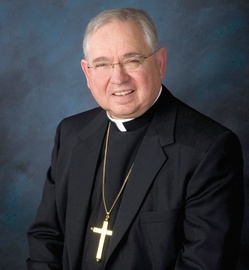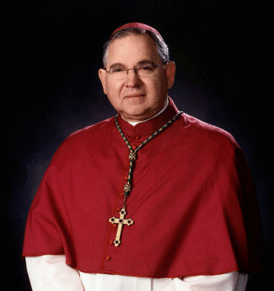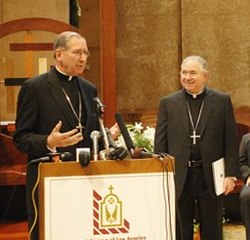In Los Angeles Archbishop José Gomez’s weekly column for today’s edition of Los Angeles weekly newspaper, The Tidings, he dedicates time to what we ought to make time for in Lent. Given the recent events in LA with the retired cardinal and auxiliary bishop, His Excellency’s words hit home, or at least they ought to. What is clear to me is that we can’t settle for following Jesus “half way” and “good enough” is not, in fact enough. The life we lead, our spiritual life, the friendship we share needs constant review and a constant infusion of grace. Gomez starts us on the path to ask, Am I leading the right kind of Christian life? The column, emphasis mine:
These have been challenging days for our local Church here in Los Angeles.
I have been talking and reflecting with Cardinal Mahony and Bishop Curry, along with our other Auxiliary Bishops about the events of last week. We are committed to moving forward in our ministries with hope and confidence in God’s grace.
We need to keep praying for those who are hurting. We need to ask again for forgiveness for the sins of the past and for our own failings. And we need to match our prayers for grace with concrete actions of healing and renewal.
And recent events should inform our prayer, penance and charity in this season of Lent, which begins next week with Ash Wednesday.
All of us need the grace of a new conversion. This is what Lent is for.
We need to be transformed once more by the person of Jesus Christ and the power of his Gospel. We need to live our faith with new sincerity, new zeal, new purpose and new purity. We need a new desire to be his disciples.
I cannot say it enough: We all need to rediscover the essential message of the Gospel — that we are children of a God who loves us and who calls us to be one family in his Church and to make this world his Kingdom, a city of love and truth.
The challenge we face — now and always, as individuals and as a Church — is to resist the temptation to only follow Jesus “half way.” We should never settle for mediocrity or minimum standards in our life of faith. There are no “good enough” Christians, only Christians who are not doing enough good.
God wants us to be great! We are called to the holiness of God, to a share in his own holiness. Jesus said this in his Sermon on the Mount: “You, therefore, must be perfect, as your heavenly Father is perfect.”
Holiness does not mean separating ourselves from the world. Just the opposite. Holiness means loving God and loving our neighbor in the middle of the world. In our families, in our work, in our play, in everything we do.
The pathways of holiness are different for every one of us. How we love, how we seek the face of God, depends on the circumstances of our lives. And we will never be finished in this work of holiness.
But that’s the fun, the beauty and the joy of our faith.
The way forward for our Church is for each one of us to rediscover this universal call to holiness. This is the meaning of our Christian lives. We are children of God called to be holy as our Father is holy. And we seek that holiness by working with his gifts of grace to love as Jesus loved.
During these challenging times for our Church, we have to resist the desire to turn inward or to withdraw from our involvement with our culture and society.
We still have a mission as a Church — to continue the mission of Jesus Christ. Jesus came to redeem us from our sins and to show us the way to a new life of holiness. We need to carry his message of salvation, conversion and forgiveness to every person. We need to find new ways to evangelize our society — new approaches rooted in humility and the search for holiness, beauty and truth.
We can only change this world if we allow God to change us first. The lives we lead will always be the most credible witness we can give to the Gospel we believe in. People should be able to see “the Catholic difference” — the difference that our Catholic faith makes in our lives.
Our world today needs saints. Not “other-worldly” saints — but saints in our cities, our families, our parishes and schools, our media, our businesses, legislatures and courts.
We can’t wait for others. We need to become those saints ourselves. We need to inspire others around us to want to be saints.
So this week, let’s pray for one another and for our Church. Let’s keep praying for everyone who has ever been hurt by members of the Church. And let’s continue the process of healing their wounds and restoring the trust that was broken.
We can make this Lent a time for renewal and holiness. We can do this by trying to lead holier and simpler lives. Let’s live our faith with joy and compassion — and a daily desire to become more like Jesus Christ.
And let’s ask Our Lady of the Angels to help us to draw closer as one family of God.


